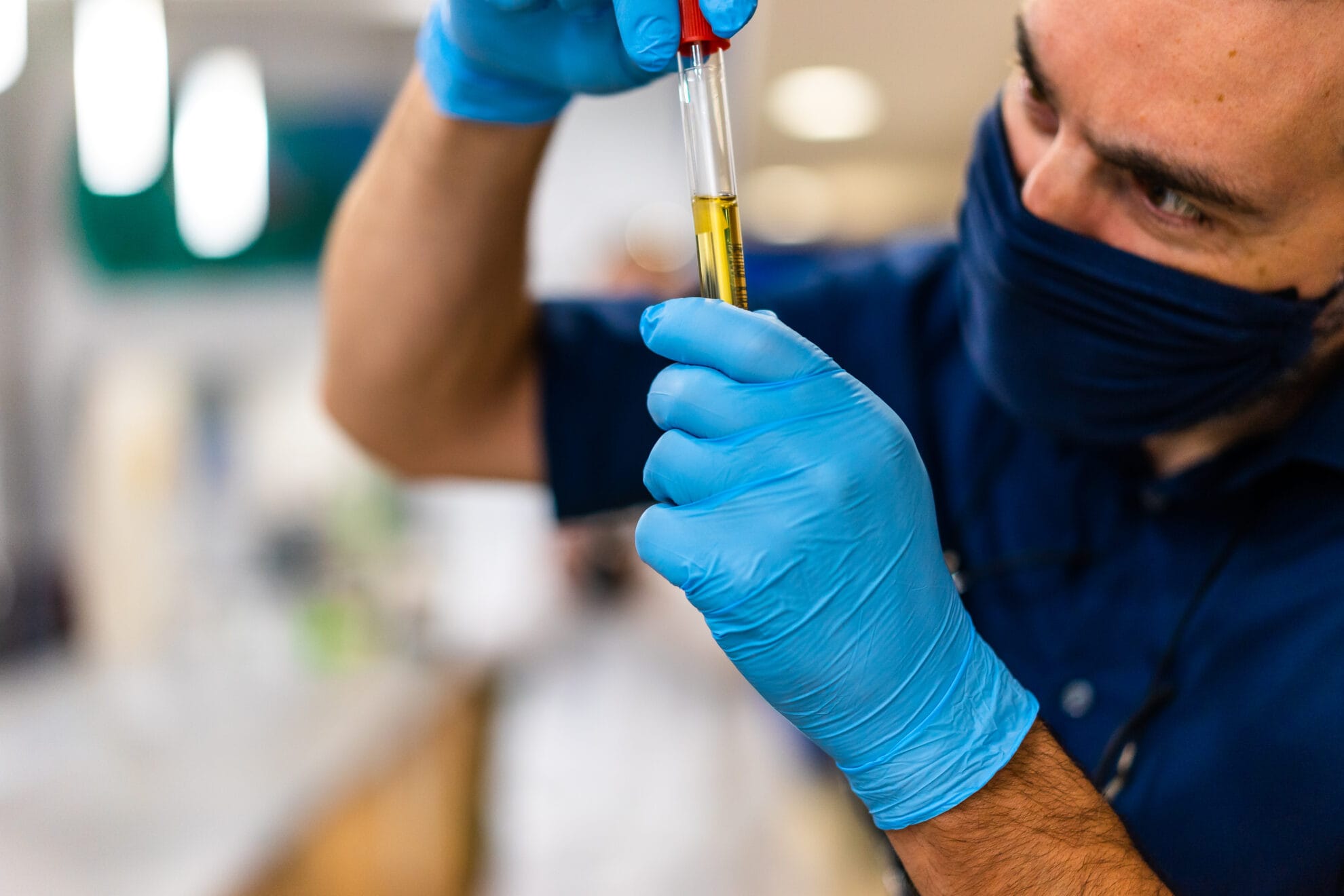By Dave Bullock, Director, Innovation & RWDI Ventures
Six months ago, during the first wave of the pandemic, we launched a new company. It was actually our second launch during the COVID crisis. Unlike the first (Orbital Stack), which had been sitting in our minds for years, Songbird Life Science wasn’t even on our radar at the beginning of 2020.
To call Songbird a “pivot” for Ventures is an understatement. We’d qualify this, however, as an “intentional, highly considered pivot.” Songbird expanded our services in an unexpected direction, but without compromising our core mission and values. Despite a couple of interesting new ventures already in market testing, when COVID hit, we realized that we had to change course—immediately. Concrete concepts that were timely in late 2019 were suddenly irrelevant. The market had changed. As had our customers’ needs.
Planet experience
Solving important problems that impact the planet is at the root of what we do at Ventures. We call it “PX” or “planet experience.” This means that we develop companies to solve challenges that emerge from the intersection of where the natural and business worlds meet. This often means building solutions for a changed climate and natural weather events.
With COVID, our customers still faced challenges of how their businesses and communities interacted with pressures from the natural world. This time, however, the threat was invisible. Understanding how pathogens interact within the environment and how they travel in shared spaces was the new focus. And our solutions required new tools for measuring, monitoring and mitigating these new risks. Launching Songbird required flexibility, but without conceding Ventures’ master vision.
Science-based solutions
Science is at the forefront of everything we do. And to tackle the greatest challenge of our generation was no different. In the early days of COVID, the market was flooded with questionable products. Often related to cleaning and hygiene, these products exploited people’s fears. The need to apply evidence-based solutions was urgent. We needed to act quickly, but not until we were confident we had effective solutions to offer.
With our deep roots in building sciences, we understood the role that buildings (and the air inside them) play in the transmission of pathogens. We also had the expertise to build the digital tools needed to monitor and mitigate these risks. But we knew we needed a partner with an understanding in infectious disease and epidemiology. We found one in Purity-IQ. As committed pathogen specialists affiliated with the University of Guelph, the Purity-IQ team also leads with science and is truly invested in R&D.
As the fastest growing initiative in the history of RWDI, the Songbird team has been running at full speed since its start up. And things only accelerated further in September when Health Canada approved our testing device, the Hyris bCUBE, for point-of-care human testing for COVID-19. Unlike other rapid tests, the bCUBE is a PCR (polymerase chain reaction) based device, meaning it applies the same “gold standard” of testing used by diagnostic labs. Now, instead of waiting days for results, people can have definitive, diagnostic results in minutes—wherever they are located.
Thoughtful deployment
Leading Canadian companies, provinces and organizations quickly reached out to us to proactively protect their people, operations and wider communities. Despite easy sales that could be made to private companies, we pledged to offer a thoughtful deployment. Our goal was (and continues to be) to support those who need it most. This meant reaching corners of our country where public health services are limited. So far, our services are available to:
- Remote and northern workplaces and communities without access to medical clinics and testing;
- Essential workers, including teachers in Manitoba, supporting a safe workplace;
- Critical infrastructure industries that are key economic drivers;
- Patients and frontline workers in some regional hospitals across Canada;
- Seniors living in long-term care homes in Manitoba; and
- Young Canadian athletes working hard to continue their training and compete safely.
What’s next?
As we await full global distribution of the COVID-19 vaccines and widespread immunity to take effect, point-of-care rapid testing, along with proven public health measures, remains critical. In the meantime, a renewed focus on building health and air quality will push design standards to new levels. Heightened expectations for buildings and their relationship to occupants’ health is driving our groundbreaking R&D. This includes the development of air sensors to test for particles of other viral threats or pollutants. And more immediately, a simulation tool to help building operators calculate and quantify risks to optimize efficiencies, without compromising safety.
From day one, we knew that our work at Songbird was possibly the most important and purposeful work of our careers. Six months later, we are even more convinced. And when the pandemic eases, and the world shifts again, we will remain flexible enough to pivot yet again, but always with the planet and its people at the forefront.
P.S. As the important work at Songbird grows, so does our team. If you are looking to begin your next adventure, and share our passion for solving truly important and challenging problems, consider our current postings.
